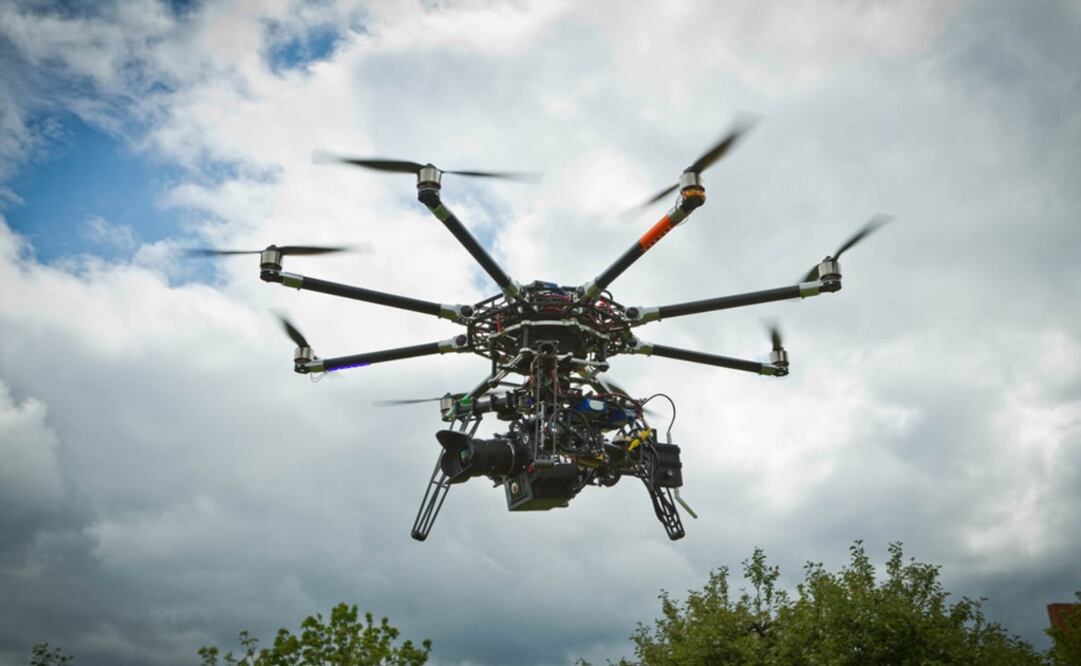Más Información

New York Times destaca rol de Harfuch en el combate del narco; resalta intercambio de inteligencia con EU

Marco Rubio destaca labor de seguridad de México; "están haciendo más que nunca en su historia", afirma

"Queremos cerrar este capítulo", dice Salinas Pliego al SAT; esperarán a enero a conocer fundamentos legales de adeudo fiscal
Mexico’s Defense Ministry (Sedena) will implement an anti-drone system to nullify, control, and limit the use of drones by criminal organizations and drug cartels . According to authorities, these devices represent a risk for the army and its headquarters, as well as for civilians, government officials, diplomats, and government facilities.
The Sedena will acquire a Supervision and Control System for Unmanned Aerial Vehicles, also known as anti-drone systems, with an MXN 215.7 million price tag. However, the government department will keep the details under wraps until November 2024.
A document obtained by EL UNIVERSAL indicates the government will not reveal further information regarding the anti-drone system because the information contains “specifications, technology, or equipment that is used for the generation of intelligence for national security .”
Nevertheless, the investment project also indicates that the Mexican army will deploy the anti-drone systems throughout the country. The anti-drone systems will be controlled by a team based in Mexico City.
Recommended: The Jalisco New Generation Cartel uses drones armed with C-4 explosives to kill its rivals
According to the documents, the acquisition of this type of technology will prevent drones from entering key areas, and it will also decrease the impact organized crime has on society.
The Defense Ministry argues that “drones operated by terrorists and other malicious groups represent a wide variety of risks for security, especially at facilities such as airports, essential infrastructure, prisons, stadiums, military bases, and strategic facilities, among others.”
For example, in 2018, the Gatwick airport in London was forced to cancel around 1,000 flights when authorities spotted a drone near the runway. According to Bosh Security, these measures affected 140,000 passengers.
Other companies like NQ Defense, Skylock, Cerbain, Tactical Security, and Indra Company agree that drones pose a real threat.
In July 2017, Mexico’s Civil Aviation Authority published a statement that establishes the requirements needed to operate a drone inside the Mexican airspace.
According to Tactical, Mexico represents 5% of the world’s drone market, which is worth around MXN 127,000 million.
Recommended: Drones, Mexico's new air force fighting COVID-19 from the sky
Drug cartels use drones
In late August, EL UNIVERSAL reported that the Jalisco New Generation Cartel was using drones armed with C-4 explosives to kill its rivals.
Journalist Denise Maerker first revealed the information and explained the drug cartel uses C-4, an explosive used during wars.
In an interview with local vigilante groups, they said that after a clash with the deadly drug cartel, they found two drones and four explosives. This way, vigilantes discovered the CJNG is creating new weapons by strapping bombs to the devices.
However, this is not the first time the Jalisco New Generation Cartel uses drones. The Attorney General’s Office launched an investigation in May, and the drug cartel now faces organized crime and terrorism charges.
Back in May, the Attorney General’s Office found several drones and C-4 explosives in Puebla. The CJNG also used these types of explosives in Guanajuato.
gm
Noticias según tus intereses
[Publicidad]
[Publicidad]











